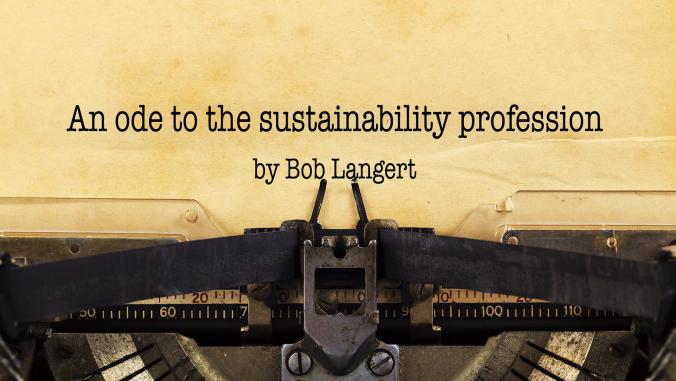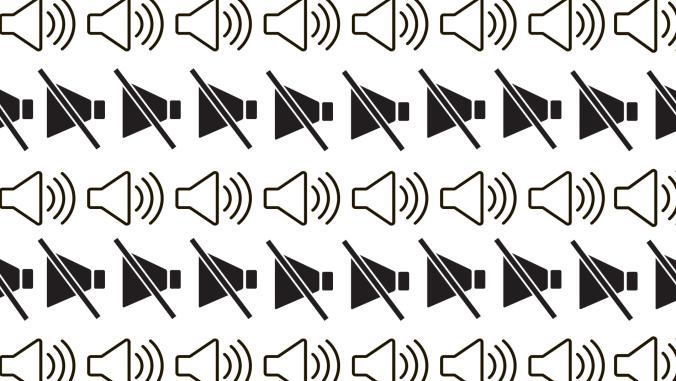My NGO hall of fame: What I learned from the best of the nonprofits
Here's the knowledge I would package and reuse if I had to start my sustainability career all over again.

If I had to start my sustainability career all over again, I’d package, recycle and reuse the wisdom learned from 27 years of partnering with the likes of the Environmental Defense Fund, Conservation International and the World Wildlife Fund. I pondered this as McDonald’s just announced its new packaging design (with sustainability embedded).
I was so naïve back in 1988 when given the assignment to phase out of CFCs in packaging and try to save the polystyrene clamshell. If you had told me back then that in 2016 my McDonald’s would be well on its way toward sourcing all its fiber from recycled or certified sources by 2020, I would have tried even harder and smarter to make other big changes happen sooner and differently.
(Note: I say “my McDonald’s” to declare my open bias and passion toward the system I worked 33 years for. I retired last March. )
There are still too many negative and undeserved stereotypes about NGOs and their leaders. A big part of McDonald’s sustainability evolution — and other company’s — is due to bright NGO leaders who knew how to make an impact.
Here’s my NGO Hall of Fame, reflections and lessons learned:
- Your corporate team will want to see them: The common thread of the effective NGO leader is “likeability.” I bet you thought I would say “their passion” or “dogged commitment” to change the world. While this is true, what’s most common and effective in their work was their good nature and fun spirit. Paul Shapiro from the Humane Society of the United States exemplifies this. Even though we don’t agree on a fair amount, but because he’s affable — and no jerk! — we found common ground, getting rid of gestation stalls for sows and going cage-free for hens.
- A great source for inspiration: I remember Glenn Prickett (formerly with Conservation International, now with The Nature Conservancy) motivating me and my colleagues to go after sustainable beef back in the mid-'90s. Incredibly, this year, McDonald’s is committed to begin purchasing it.
- Never fold: Jackie Prince-Roberts, and the entire team at EDF, just never gave up. There are relentless (that’s a compliment!). Jackie is now CSO at Carlyle Group.
- Stand tall: I remember a half-day session with the top 40 execs of McDonald’s, when a skeptical question about the motivations of NGOs was asked. Suzanne Apple from WWF, stood up, stood tall and in a Lincolnesque way turned the tense questioning into a brilliant and positive brainstorm on how to connect McDonald’s work to the consumer. (Suzanne retired just last week.)
- The best see the positive: I learned this from Jim Cannon (Sustainable Fisheries Partnership) in particular. He just never says a bad word about his critics or the problems at hand. He sees opportunity all the time.
- Systems thinking and patience: It is hard to find NGOs focused on the big picture. However, the best individuals within NGOs think beyond their singular cause so they can relate to their business partner. The Natural Step had both. Catherine Grey (currently with The Trium Group) and George Basile (now sustainability professor at Arizona State University) helped train our supply-chain execs back in 2000-01, and never quit trying to open our minds to their Four System Conditions. Thanks for your patience.
- Courageousness: We all can learn to take more chances, can’t we? I used to think I was brave if I spoke against the grain at an internal meeting. But seeing Paulo Adario, who heads up Greenpeace’s efforts in Brazil to save the Amazon, literally risking his life to do what he does, made me think much deeper about courage in the workplace. How he put together a still-effective Amazon Soy Moratorium is a testament to the power of courage when combined with collaboration
- Knowing how to challenge without challenging: I observed this skill from Jeff Malcolm and Alex Bjork at WWF. For example, they wanted McDonald’s eventual Commitment on Deforestation to have more depth and specifics, but they brought up all their concerns without making anyone in the room feel defensive or dumb.
- Negotiating Better: NGOs can be tough negotiators, right? I learned how to take their skills internally. I remember when the president of McDonald’s USA in the mid-'90s reversed course and changed back to the white, bleached bag. I was devastated. It was my proud achievement to have switched to the brown, unbleached bag with the EDF project back in 1991. To address the negatives of the white bag, Gwen Ruta and EDF team helped me “negotiate” a set of offset measures we took with other packaging items. Now, with the recent McDonald’s announcement, McDonald’s USA is back to the brown bags!
- 911 Sustainability Hotline: Where do you go when tough issues confront you and you don’t know the truth? A sustainability leader cannot know enough, and the ability to call a John Buchanan (Conservation International) to truly know the palm-oil situation in Indonesia when he was there just last week, is so reassuring.
Part of being a leader in corporate sustainability is the ability to pick your partners wisely. I got lucky to find people and organizations with high integrity, trust and talent. Now, if I was only 30 years old again…





